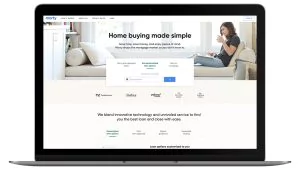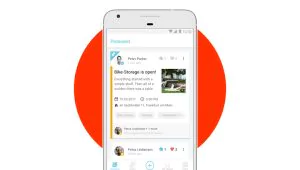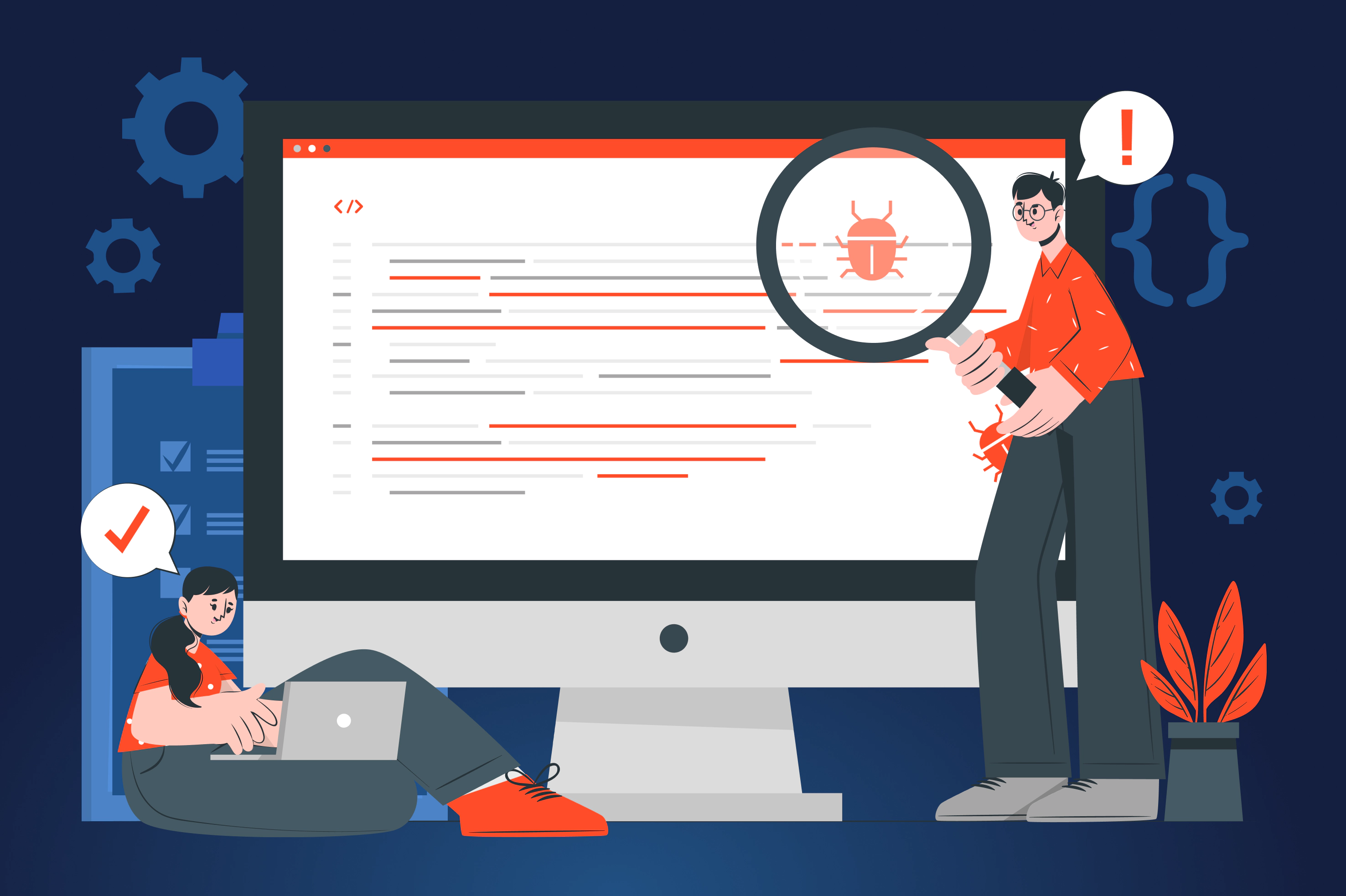The Covid-19 pandemic has transformed the world around us, bringing the urgent need to create new digital products. When people are faced with the need to follow lockdown and social distancing measures, tech solutions become a game-changer, helping to replace face-to-face communication. This created a need for new digital products to make property management processes much easier and business models more efficient.
Forbes suggests that real estate is considered to be the largest asset class globally. Yet, it is one of the last to introduce tech-enabled innovations. Today, PropTech startups have a chance to revolutionize real estate due to the lack of tech solutions. Zillow and Procore are examples of those few early movers in the PropTech industry that managed to capitalize on the technological shifts. The PropTech market forecast predicts an optimistic future of PropTech, suggesting further growth by 2027.
But before rushing into making any decision, you may want to know what business models work best in the PropTech market. In this article, the JatApp team is going to cover 12 key PropTech business models for you to make a more informed decision on what direction to pursue. Let’s start with a quick recap of what the term “PropTech” stands for.
What is PropTech?
PropTech is the term used to describe any technology applied in the real estate industry. Now you may wonder: What is a PropTech company and what is the PropTech industry? A PropTech company is a firm that develops property technology to make managing, controlling, planning, trading, and using real estate more efficient. All the companies that rely on tech solutions to make the real estate sector easier and more efficient form the PropTech industry.
The PropTech industry is currently booming and becoming more attractive for PropTech investments than ever before. PropTech market size has increased from $20 million in funding in 2008 to $9.6 billion in 2021.
Now, let’s move on to successful PropTech business models to consider when starting your PropTech company.
12 PropTech business models to look up to
1. Real estate marketplace
The real estate marketplace helps to connect property managers, brokers, and realtors with their clients. If you coordinate the project, manage several contractors, and process the data about more than 100,000 properties, you may find it hard to keep up. The data-driven technology acts as a helping hand, minimizing the paperwork and increasing overall efficiency. The software analyzes thousands of data types and immediately provides recommendations that are in line with the user’s needs.
HouseCanary is a real estate marketplace startup that reveals the future of home values. Automated valuation models and home price indices fuelled by machine learning provide users with accurate valuations and forecasts. The tiered pricing model is used to allow access to the value reports and forecasts, while usage-based pricing is selected to provide access to the analytics. The startup also relies on tiered pricing to offer users automatically generated reports. HouseCanary charges fees for connecting with mortgage lenders.
HouseCanary app functionality
2. Mortgage marketplace
A home mortgage remains a mysterious and challenging process for many. The pain points are especially felt when you need to adjust your schedule with the bank’s working hours, gather all your documents, wait for days for data verification, and even deal with someone’s judgmental attitudes. With a technology, users have many loaning processes simplified, benefiting from greater convenience and accessibility. A mortgage software helps users with the entire mortgage process, from equity release to purchasing a new home. The technology increases users’ awareness of the best loan programs available, allowing them to make a more informed choice.
Morty is one of PropTech companies that offer customers the loan options that are best for them, without the hassle. In seconds, the software aligns the options with clients’ financial situation and property. Customers can compare different prices, rate lock periods, and credits, further personalizing their loans. Morty charges a percentage off the principal, which is paid by the lender.
Morty app platform
3. Leaseback platform
This PropTech business model offers users to sell their homes while remaining tenants. Clients save time and receive the money they need for pursuing their ambitions and life goals. Whether buying a new property, starting a business, or paying off debt, with the leaseback platform users will no longer have sleepless nights, stressful house searches, and the burden of moving out.
EasyKnock is a startup that facilitates complicated lending processes for homeowners. The company buys clients’ homes offering them about 70% of the appraised value of the property. Former homeowners are allowed to either stay as tenants or move out later. At the end of the lease term, the customer must either sell the property to someone else or purchase it back. EasyKnock charges money from the former homeowners through monthly rent and additional fees from the sale of the property at the end of the lease term.
EasyKnock app functionality
4. iBuying platform
An iBuying platform software gives users a chance to sell and buy a home using a mobile device only. For home sellers, the technology helps to make a transparent offer avoiding all the fuss and uncertainty. Clients may relax and stop worrying about fixing the roof, choosing the best agent, and wondering if their property will be sold at last.
Opendoor is an iBuying platform leader whose business model is rather simple: the company purchases houses and acts as a middleman in property transactions. The company doesn’t purchase all types of property, but only houses constructed after 1960 with an appraised value between $125,000 and $500,000. Opendoor cooperates with both seller commissions and real estate agents. The startup makes money by charging fees for the services, ranging from 6 to 12%. Opendoor also earns from the differences between the property’s buying and selling price.
OpenDoor app functionality
5. Workplace Management Platform
The workplace management platform solution assists workplaces in optimizing real estate management, services management, workplace management, asset and maintenance planning, and so on. The software allows managers to minimize facility and real estate costs and enhance business productivity at the same time.
Robin is a workplace management company that enables businesses to manage hybrid work. The software offers people an opportunity to choose how and where they work. Meanwhile, the software equips organizations with the tools needed for success, such as hybrid work scheduling, office demand measurements, capacity tracking, office access management, employee health screening, and so forth. The company opts for the tiered pricing model providing several packages, such as basic, pro, and premier, with different functions offered at different prices.
Robin app platform
6. Insurance for landlords
Landlord insurance software facilitates the process of getting insurance for individuals who rent their homes to other people. Landlords save their time and energy due to the fast and easy procedure while still protecting their property from a wide range of risks. Whether it is a natural disaster or tenant injury, landlords can feel safe knowing that they won’t get stuck with the burden of sudden expenses.
Steadily refers to one of the PropTech companies that make the process of rental insurance easy. You only need to describe your property, complete coverage in a couple of minutes and electronically sign your insurance document. The company uses per feature pricing to empower customers to choose how many risks they want to have covered.
Steadily app platform
7. Smart home solutions
Smart home solutions enable connections with appliances and devices to automate a range of processes, such as smart security cameras, heating and cooling, door locks, lights, and such. A smart home system is usually controlled remotely. The smart home software improves users’ household convenience, ensures more efficiency in energy use, and offers greater security.
Openpath refers to the smart home solution company that provides mobile access control products. The software allows customers to open authorized doors by using their mobile phones. You just need to wave your hand, without even opening the app or the phone and the system will recognize you. The company’s pricing model has two types of tiers, basic and premium, based on the combination of features users need.
Openpath app platform
8. Virtual tour software platform
The visual tour software presents a property in a panoramic, 360-degree view. Owing to this technology, you can view a location without actually visiting the place. Due to the ease of access, users can have a look at many locations without the need to travel anywhere. But beyond all that, the increased demand for visual tours has become one of the major PropTech trends. The technology helps customers to follow social distance measures and take care of their health in times of a pandemic.
Rooomy is a visual tour software company that provides virtual staging and design services. Real estate brokers deliver photos of a location for $20 per object. The technology identifies where the walls in the location are and transform the photo into a 3D model. Rooomy allows users to make a one-time purchase, charging them $49-$109 per property image with a customized design service included.
Rooomy app platform
9. Energy consumption tracking and optimization
Tools within this business model help with minimizing energy costs for communities, buildings, and industries. When you track energy consumption, you can better understand how much energy your property requires and ways to optimize its usage. The software generates reports, so that you can decide how to reduce the use of electricity.
OhmConnect employs energy market integration and smart meter analytics to improve users’ home energy management. The software helps identify which things within the property are consuming more energy and from which plant the energy comes. In times of intense demand, users receive alerts asking them to conserve energy. Users can get rewarded by the app for their energy-saving efforts. OhmConnect receives funds for software maintenance from energy suppliers and state programs.
OhmConnect app functionality
10. Real estate crowdfunding
The real estate crowdfunding software enables investing in a real estate project by individuals instead of requesting funds from big companies. Investors can become shareholders without heavily financing the project or purchasing a property to get a return.
Fundrise epitomizes a real estate crowdfunding platform, which helps investors to find real estate opportunities aligned with their preferences. Users have the power to control investments online and get financial reports on a regular basis. The startup charges a fee of 0.3%-0.5% of the investment each year. Also, the company opts for charging a $5,000 due to diligence cost as well as a one-time origination fee of between 1% and 2%.
Fundrise app functionality
11. Home service management software
Home service management software refers to operating field service businesses with increased efficiency and ease. The software provides companies with dispatching, route optimization, and scheduling tools. Many business processes, which priorly depended on lengthy phone calls, endless paperwork, and confusing calendars, now have become automated.
ServiceTitan is a PropTech business that aids home service firms, such as plumbing or HVAC, in addressing different aspects of home service management, from sales to scheduling. The software enables technicians to make presentations to support sales, as well as helps dispatchers to manage a lot of phone calls and obtain necessary information on the spot. The company has usage-based pricing, as the price goes up, if you use more of the individual contractors’ service.
ServiceTitan app functionality
12. SaaS-based property management platform
SaaS-based property management platform seeks to support communications and relationships between property managers and renters. Businesses following this model help to retain customers and ensure their commitment to property management services. Meanwhile, customers enjoy an easy and secure rental process driven by PropTech solutions.
TurboTenant is a SaaS-based property management startup that provides the necessary tools to manage the rental process. The technology helps to screen renters, estimate the rent, obtain tenant applications, and receive money for the rent online. The app is free for landlords, while tenants have to make a one-time payment. The company relies on per feature pricing, offering a greater number of features for higher-priced packages.
TurboTenant app functionality
Cunio is also one of the PropTech examples following this business model. JatApp helped develop this property management platform to allow renters, service providers, landlords, and property managers to keep the lines of communication open via a virtual pinboard and integrated messaging service.
Cunio app functionality
A notification microservice lets service providers and residents keep things related to property management under control. Here is how it works: when a renter places a request for fixing lights in the hallway, a notification is sent to a service provider, so that they can agree on a date when they are going to solve the problem. The renter gets notified about the date via email, SMS, and push notifications. Once the job is done, the renter can evaluate the service delivered, and the service provider in turn will receive a notification with the rating.
Cunio app functionality
Cunio uses the freemium pricing model delivering a free-to-use product, complemented by paid packages.
What will change after Covid-19?
We’ve described the business models that take advantage of the competitive edge of PropTech solutions in times of the pandemic. Covid has steered the PropTech growth and offered a new opportunity to advance technology use across the real estate sector. Property technology companies have been challenged to simplify real estate processes in order to avoid face-to-face interactions.
Clients’ safety has become a priority for real estate companies, and PropTech startups are now placing their trust in tech solutions that help them to work under new conditions. More and more real estate developers are starting to realize that a return to normality will require a greater reliance on technology and a different mindset even after the pandemic is over. Tech solutions that currently exist on the market will become even more dominant, changing real estate on a global scale.
Our company has accumulated successful experience in developing software that disrupts the real estate industry, like Cunio and a property management platform for supervisors. Want to transform the PropTech landscape and build a similar solution? Our team would be glad to assist you and make your ideas happen!
















